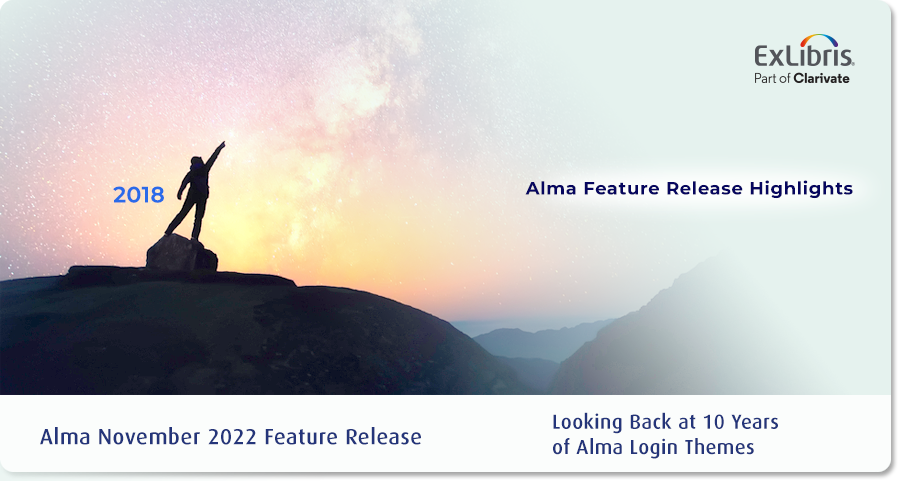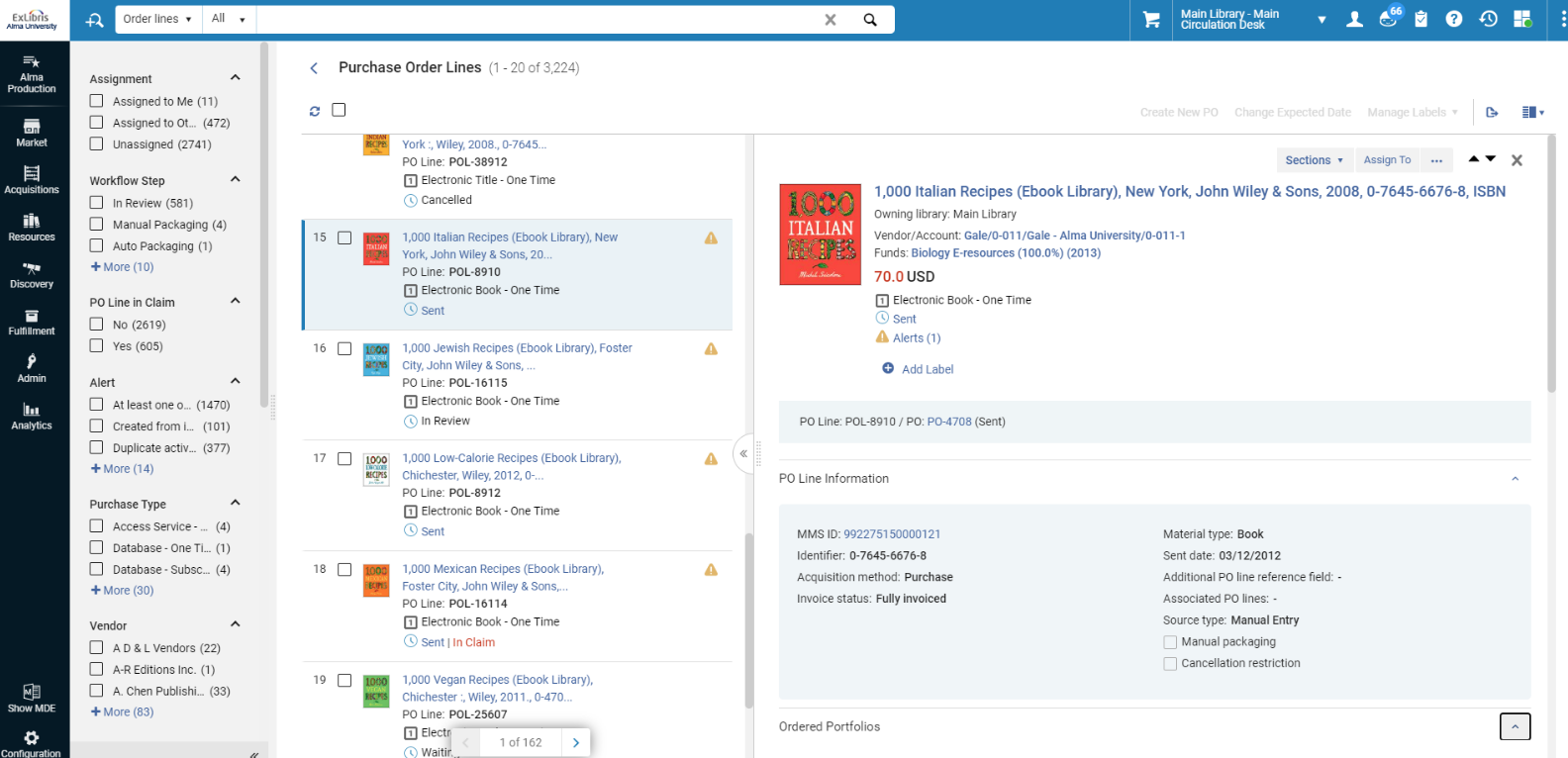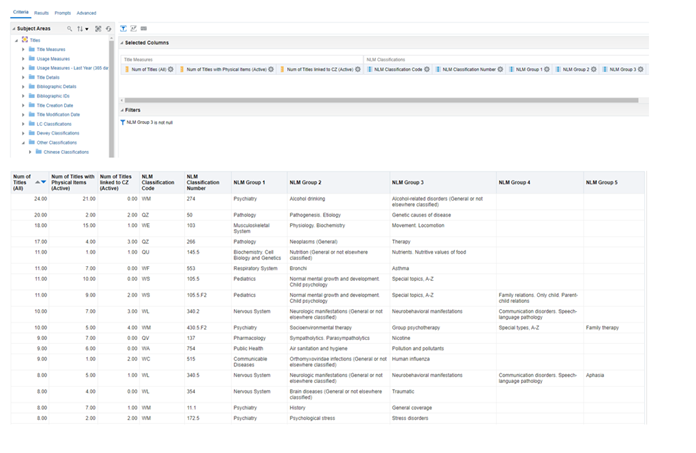November Feature Release Highlights


New Single Claim Letter for Multiple Claimed Orders
A new "PO Line Aggregated Claim Letter" has been added to Alma to improve the correspondence between the institution and vendors.
Today, Alma sends a single email to a vendor for each claimed order. With the new "PO Line Aggregated Claim Letter" a single email will be sent to the vendor containing a list of all claimed orders.
New Unified PO Line List Available for Early Testing
PO line search results and editing pages are accessible with a new User Experience and UI design for institutions who would like to become early testers.
Users will be able to continue to use the current interface or opt in to try out the new experience.
The New Unified PO line task list has many benefits, including:
- A multiple facet selection that supports a more flexible tool for creating a work set by including PO lines that meet multiple criteria of the same facet in one work set.
- “Assignment” as a facet.
- Informative search results.
- Right pane as an editing area for the selected PO line.
- It is possible to add labels to a PO line, as well as being able to facet or search PO lines by these labels. This brings efficiencies to the PO line processing workflow by enabling on-the-fly tagging of orders with workflow related indications.
- “Single page” application to save extra navigation needs.
- A sliding panel overlaying the list enables full work on entities related to orders without losing the PO line list context.
- New advanced search provides users with an easier way of building complex nested queries together with a modern and accessible UI. It utilizes a new query builder which allows for creating nested logical conditions of 'and', 'or'.
See this short video for a preview of the new interface.
- The current user interface will remain available and easily accessible to allow for gradual acclimatization if needed.
- The New Unified PO line task list was shown in a webinar in May 2022. Click here to view it. You can learn more about other sessions in the Alma 2022 Roadmap and Webinar Series Pages or on the Education and Knowledge Webinars Pages.
- If your institution would like to test the new design in production, send an email to earlytester.support@clarivate.com


 Idea Exchange - Usage Reflection for Community Zone Collections
Idea Exchange - Usage Reflection for Community Zone Collections
Each Community Zone Collection has 2 new indicators:
- Usage - how many times the Community Zone collection has been activated
- Region - The region from which this collection was activated
There are 3 main regions:
- Asia Pacific
- Europe, Middle East, and Africa
- North America & Latin America
 Adding these 2 items of information allows users (who browse the Community Zone in order to activate resources) to better understand which resource is most suitable for activation.
Adding these 2 items of information allows users (who browse the Community Zone in order to activate resources) to better understand which resource is most suitable for activation.
Exclude Heading from Linking
It is possible to exclude specific headings from being linked to an authority record by automatic processes.
This is especially useful when a field contains data that is similar to an existing heading, but is not really related to that heading. This will prevent the field from being incorrectly associated with the heading, and will improve the integrity of the library's metadata.
 This is especially useful in cases where a creator's name is identical to an authorized creator, and there is not enough data to distinguish the two and prevent linking.
This is especially useful in cases where a creator's name is identical to an authorized creator, and there is not enough data to distinguish the two and prevent linking.
Enable the Improved ProQuest Ebook Central Upload Electronic Holdings
For institutions utilizing ProQuest Ebook Central Upload Electronic Holdings and that have not yet moved to the improved process, we strongly encourage you to do so, as doing this will have multiple advantages:
- Frequency - Ex Libris has moved from full synchronization on a weekly basis to daily incremental processing, which is faster and keeps your collection as up-to-date as possible.
- Subscription Titles - In addition to the activation of ProQuest Ebook Central Owned and DDA titles, the integration now supports the activation of subscription titles.
- Purchase Model Indication - Each portfolio will include an indication of the ProQuest Ebook Central Purchase Model: Owned, DDA, or Subscription (including the subscription collection names)
- Title that are missing from the Community Zone at the point of the daily integration will automatically be activated once added to the Community Zone.
Customers that are not using the PQ EBC Upload Electronic Holdings integration and would like to utilize it, can enable the integration according to the instructions outlined here.
Customers who are already using the PQ EBC Upload Electronic Holdings integration, and would like to utilize the improved option, will be moved to the new integration by Ex Libris. For details, please contact Support.
See Upload Electronic Holdings from ProQuest Ebook Central for Subscriptions/Owned/DDA.

Restrict Editing Bibliographic Metadata Fields
The Consortia Central Office is now able to control the bibliographic metadata fields that can be edited by Network Zone members.
Examples of use cases:
- The Consortia Central Office would like to protect the Network Zone bibliographic record 035 field from edits by consortia members
- The Consortia Central Office would like to prevent consortia members from editing the bibliographic 6XX field of a certain vocabulary
 This allows the consortia office to maintain the quality of Network Zone Bibliographic records by preventing unwanted edits of specific fields.
This allows the consortia office to maintain the quality of Network Zone Bibliographic records by preventing unwanted edits of specific fields.

Automatic Registration of Handle Identifiers
Alma supports automatic registration of Handle persistent identifiers with an Ex Libris hosted Handle.Net server, using a new Handle integration profile to allow a smooth and easy integration without any servers set up on the customer’s side.
 Allow librarians and researchers to reference digital resources with persistent identifiers, agnostic to the resource location.
Allow librarians and researchers to reference digital resources with persistent identifiers, agnostic to the resource location.
Improved UX in the Alma Viewer
The Alma Viewer design has been improved to provide maximum space for the file content thus providing an optimal end user experience. Several new configurations allow collapsing information panes by default. The file display has been expanded to improve the viewing experience.
 These improvements will provide an optimal end user experience for patrons viewing the library’s digital resources.
These improvements will provide an optimal end user experience for patrons viewing the library’s digital resources.

Transfer Requests to Relais
It is now possible to push borrower requests to Relais systems, similar to the existing option to push borrower requests to ILLiad and Tipasa/WorldShare ILL.
This new option enables requests that have not been fulfilled by a local peer-to-peer rota to be automatically pushed into the Relais system, where they will be further processed as a broker-managed request.
 This eliminates the need to manually transfer such requests to these systems.
This eliminates the need to manually transfer such requests to these systems.
New Resource Sharing Task Lists - Opt Out
As of the November release, the use of the new resource sharing task lists will become the default system behavior.
Users that want to opt out of this will be able to manually change their personal settings to use the classic task lists.
We were interested to note that to date, 460 institutions and 1200 users chose to opt in to the new Resource Sharing task list.
See more about this here: New Resource Sharing Task List.

NLM Classifications in Alma Analytics
A new sub-folder titled “NLM Classifications” was added to Alma Analytics, similar to other classification systems that currently exist in various Subject Areas that have bibliographic details. For reporting purposes, "Top level" classification codes and numbers from the call number are extracted from fields 060 or 096 (link) from the ALMA MMS record.

Please note that this will be deployed gradually. New records will be updated on the following business day and existing records will be updated gradually throughout December 2022.
 It will be possible to create coherent reports divided by groups to help librarians better analyze their collection according to medical subject headings.
It will be possible to create coherent reports divided by groups to help librarians better analyze their collection according to medical subject headings.

